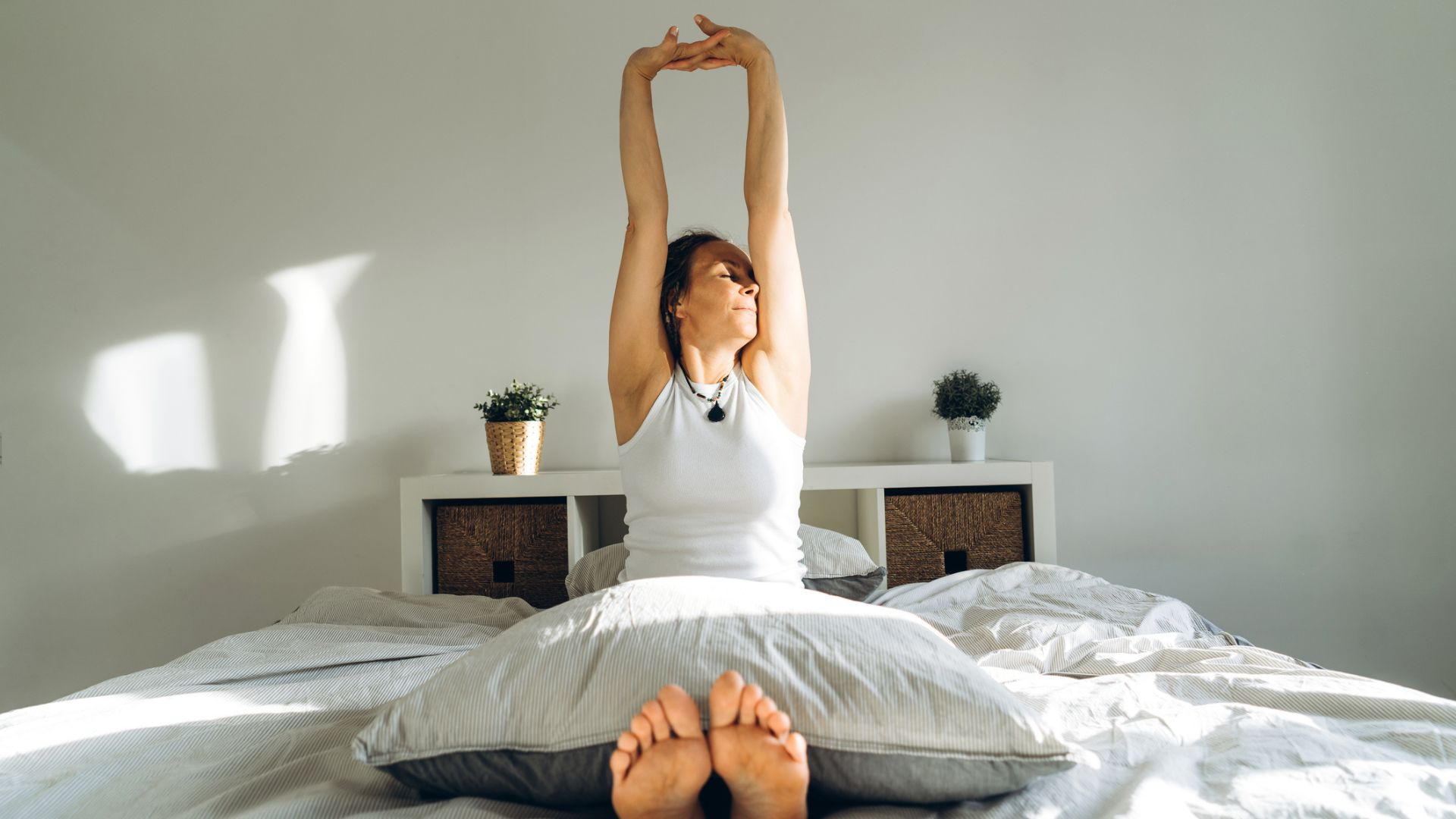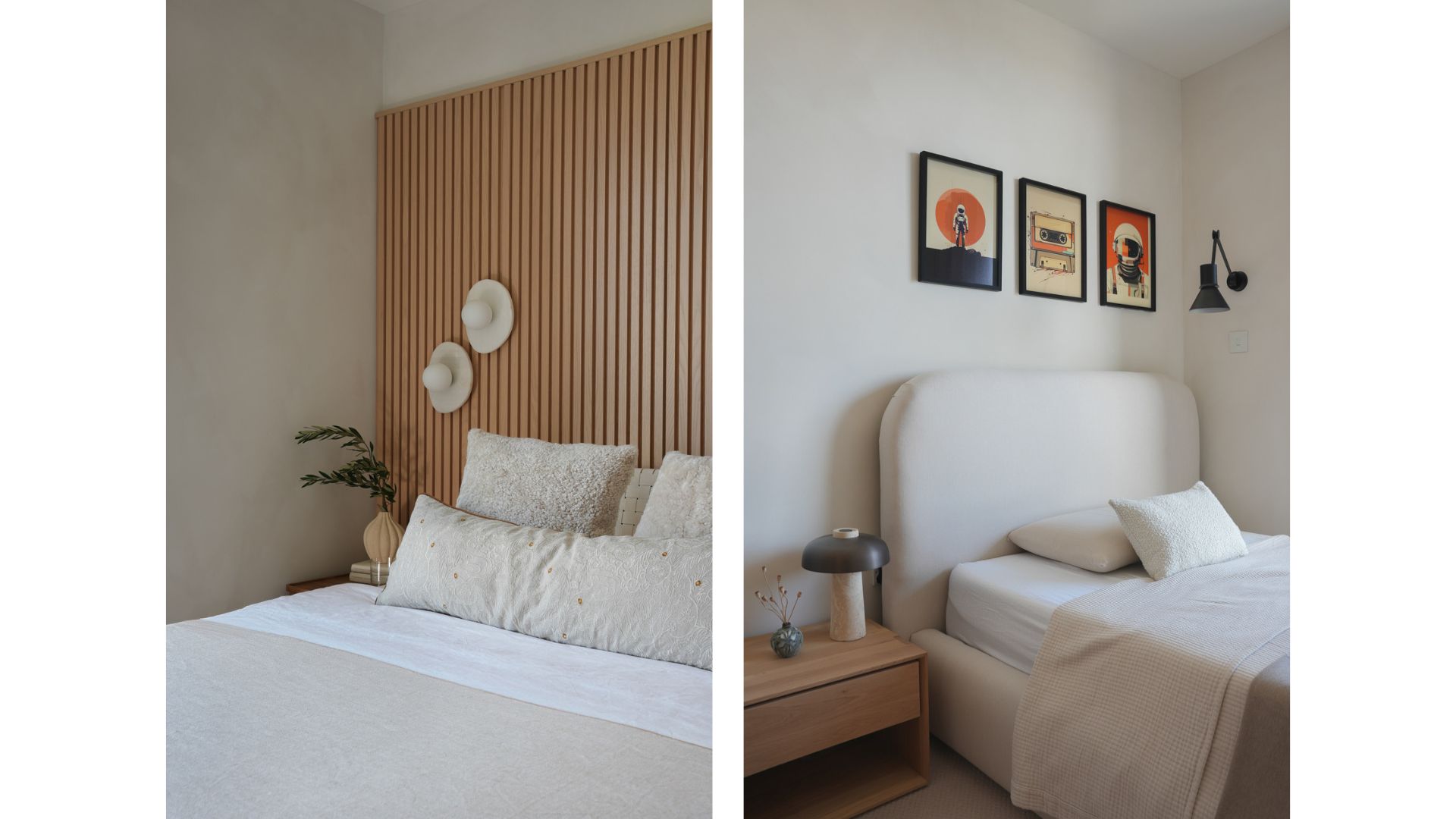'How separate bedrooms saved our relationships' 3 women reveal the unexpected upsides of sleeping apart
If you struggle to sleep due to a partner's nighttime noise, perhaps it’s time to join these three ladies who’ve found the answer in his and hers bedrooms


Snoring rooms first entered the public consciousness about 15 years ago when it was widely reported that Tom Cruise had converted a spare bedroom in his sprawling Beverley Hills home into a “snoratorium.”
Fast forward to 2025 and many high-end architects now consider snoring rooms – a second master bedroom where disgruntled spouses can retreat when their partner’s nocturnal racket becomes overwhelming – a must-have for couples with enough space.
For London-based Interior designer Pia Pelkonen, it’s a relatively common request. “Snoring rooms have quietly cropped up in the design process more and more over the past few years – often as a part of a wider brief for a calm, grown-up home," she says.
"Clients tend to mention them with a laugh... and then a sigh of relief.”
In Pia’s experience, very few are willing to openly admit to sleeping apart from partners, with many choosing to describe the space as a “sleep sanctuary” or “second master.”
The taboo of 'sleep divorce'

According to a 2024 survey from the American Academy of Sleep Medicine, 29% of Americans have chosen to sleep in a separate bed from their partner – whether in the same or a different room.
This practice is also, rather melodramatically, labelled as having a 'sleep divorce'. So why are snoring rooms still spoken about in hushed and negative tones, if mentioned at all?
Sign up to our free daily email for the latest royal and entertainment news, interesting opinion, expert advice on styling and beauty trends, and no-nonsense guides to the health and wellness questions you want answered.
Mum of two and full-time management consultant Charlotte*, 48, is delighted with the positive effect sleeping separately from her snoring husband has made. But, like all three ladies I interviewed, she preferred not to use her surname for fear of word spreading.
“When I first owned up to regularly sleeping apart from my husband, my friend told me it was the beginning of the end for us. The irony is, it’s been a complete saviour, but I don’t tend to disclose it openly,” Charlotte says.
“I’m not sure the kids have noticed, as I’m a lark whereas my husband’s an owl, so they rarely saw us in bed together even when we permanently shared a room.”
"Since my husband and I created separate sleeping spaces, we’ve been so much happier”
My friend Clemmie*, 45, shares her home with four kids, two dogs and a loudly snoring husband. She created two adjoining bedrooms when recently redesigning their farmhouse, and cannot understand why sharing a bed is considered such an essential facet of marital harmony.
“The societal expectation that happy couples sleep together when, for so many of us, that leads to chronic sleep deprivation, is crazy. Since my husband and I created separate sleeping spaces, we’ve been so much happier,” Clemmie says.

“Not only has the hugely disruptive snoring stopped but we naturally power down in different ways at different times of night so we can each indulge our own bedroom routine with no irritating interruptions.
“I was reminded of how vital this is to our relationship on a recent holiday, when I found myself sleeping on the bathroom floor of our villa for four nights, unable to quieten the racket of my husband next to me in bed.”
How to suggest sleeping in separate bedrooms
Despite also being married to an occasionally sonorous sleeper, I’ve never broached the topic of regularly sleeping apart. Instead, I find myself frequently sulking off to the spare room’s single bed when not even my trusty pillow over the head trick lessens the noise.
Snoring room convert Anna*, 42, who works in publishing, encourages anyone suffering in silence to speak up after she realised the detrimental effect both her snoring and her husband’s frequent kicks under the duvet were having. When re-designing her two-bedroom apartment in West London, she took the opportunity to tackle the issue head-on.
“Nick thought I’d be offended if he suggested sleeping apart, so we’d both been dancing around it. Once it was on the table, we agreed on a beautiful solution that made it feel like a luxury, not a failure – his and hers sleeping spaces,” she says.
“It’s been a revelation. I sleep guilt-free, and he just manages to sleep, which was a novelty for him for a while! We’re both better rested, less snappy and generally more human during the day. It’s made the world of difference.”
What makes the perfect snoring room?

A snoring room project of Pia's involved this master bedroom and second bedroom that felt equally cosy
The key to a successful snoring room is that you don’t feel like you’re being relegated to a lesser space. Pia advises making the room feel as inviting as the master suite.
“I try to make both bedrooms cohesive, ensure beds aren’t positioned against adjoining walls for better soundproofing, then make a few tweaks to infuse each client’s personality into their own space.”
Do separate bedrooms reduce intimacy?
But with so many factors, from the perimenopause to nocturnal teenagers, getting in the way of intimacy in mid-life, do separate rooms lead to a change in conjugal relations? According to Anna, no.
“It’s improved things for us. When you’re not exhausted, you’ve got more energy for everything else, including each other," she says.
"It’s made our relationship more fun again and there’s something playful and intentional about one of us 'visiting' the other in bed.”
Time to bite the bullet?

Aware of my frequently disturbed beauty sleep, my friend Clemmie turned the questions on me at the end of our interview.
“Sleep is sacred and you’re the engine room of your family. Didn’t those early child-rearing years show you that you can’t operate like that in a permanently sleep-deprived state?”
She has a point. Perhaps that spare eaves bedroom currently serving as a family dumping ground is crying out to be converted into my own occasional sleep sanctuary.
Something tells me my husband might think it was a worthwhile investment in wifely happiness.
* The last names of these women have been omitted at their request, for privacy.
Ellie juggles being Mum to a chaotic blended family of seven with working as a lifestyle and travel writer. With a Masters in Psychology, Ellie is passionate about delving into what makes people tick and bringing to life their stories. Using the real-life experience of her own ‘modern family’ and their many adventures alongside her diverse range of personal interests, she’s recently covered topics as varied as the Taylor Swift phenomena, helping kids through divorce, Living Funerals and South African Safaris. Ellie contributes to publications such as Woman&Home, Woman, Woman’s Weekly, Good Housekeeping, The Times, Red Magazine, Travel Africa and Family Traveller.
You must confirm your public display name before commenting
Please logout and then login again, you will then be prompted to enter your display name.
